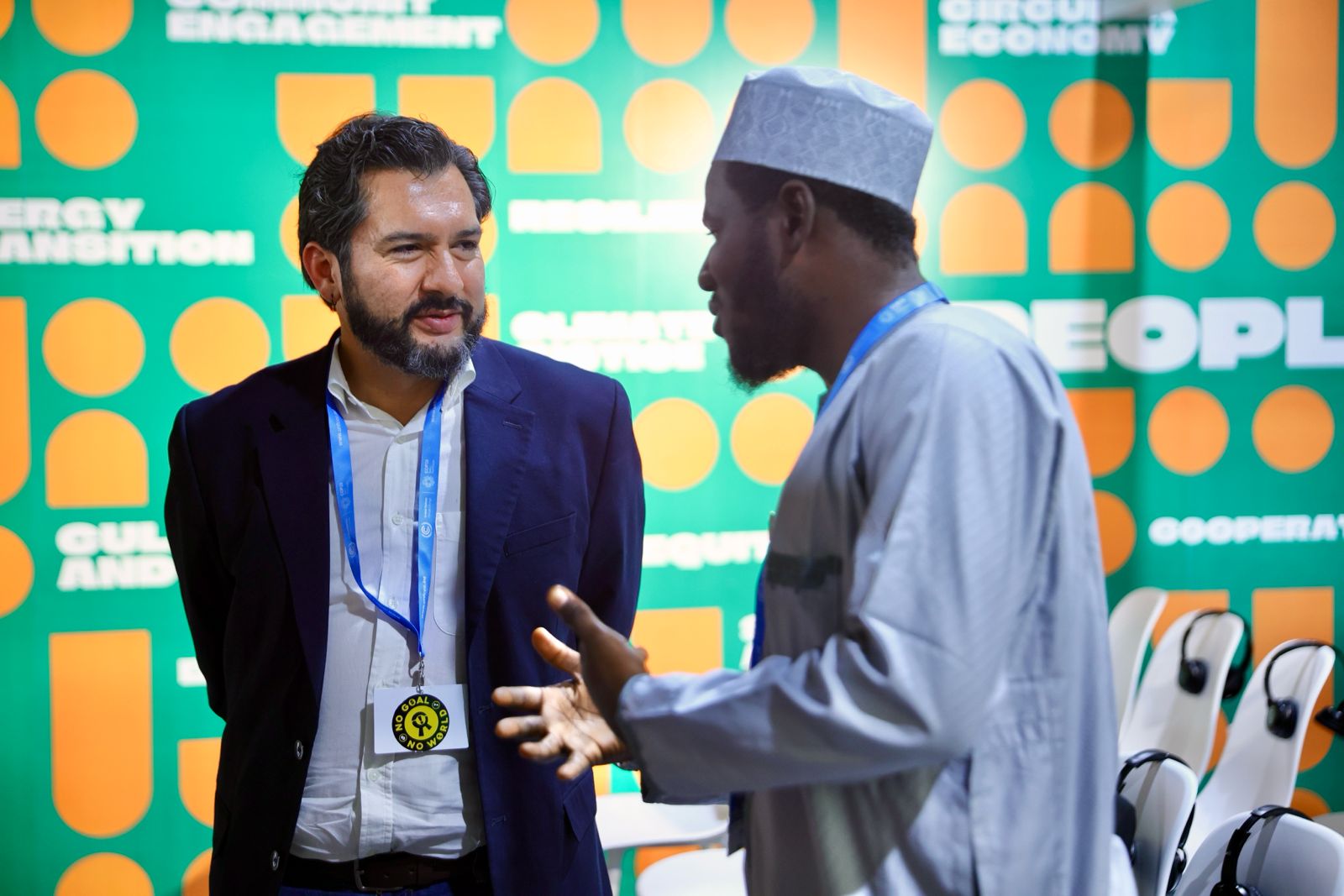During two weeks, the Regional Climate Foundations Pavilion at COP29, in Baku, was a space for dialogue and collective construction on subjects that are in the negotiations of the climate agenda. “We’ve managed to enhance across regions debate concerning the most pressing topics like just energy transition, finance ambition, implementation and also transparency and accountability of climate targets”, evaluates Mariana Gutiérrez Grados, climate policy manager at Iniciativa Climática de México. “It was a pleasure and a privilege to co-host this Pavilion with our other allies”, completes her, referring the eight philanthropic organizations that hosted the pavilion.
Around 60 events occurred in the space, bringing together the eight foundations and their grantees, but also public authorities and representatives of the private sector. “The contribution of the RCF pavilion was crucial because it allowed civil society, the private sector and government representatives to interact”, agreed Maria Netto, the executive director of Instituto Clima e Sociedade, from Brazil. “This included dialogue on the climate finance agenda, in particular the country platforms, and so talks on new solutions, for example in the agricultural sector and also in the area of green industries and energy”, explained.
Some aspects — as the energy just transition and the challenges to financing climate action — were approached from the angle of many of the countries that are represented in the pavilion, creating a diversity of point of views that is useful to improve the projects that are already being developed. “It was important to see how we are trying to implement actions in Brazil that relate to actions in other countries, such as South Africa, Mexico, China, India, Singapore and Indonesia. It was also nice to have the European Climate Foundation to exchange experiences that are sometimes more sophisticated in the global north”, completed Maria.
Netto also highlights the opportunities for bilateral dialogue. ‘We discussed biofuels with India, renewable energy and the green industry with several countries”.
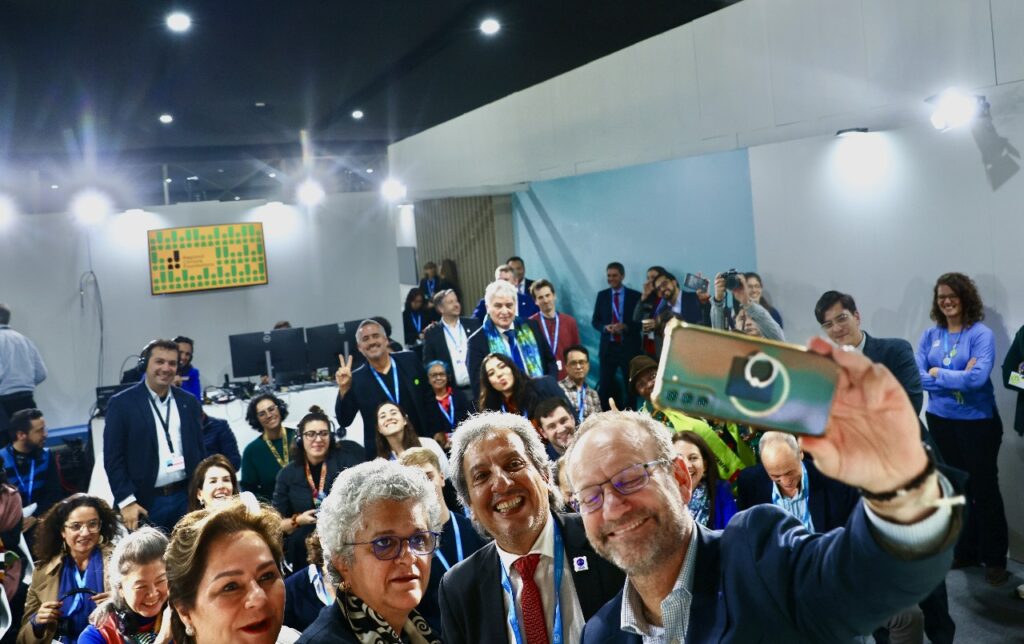
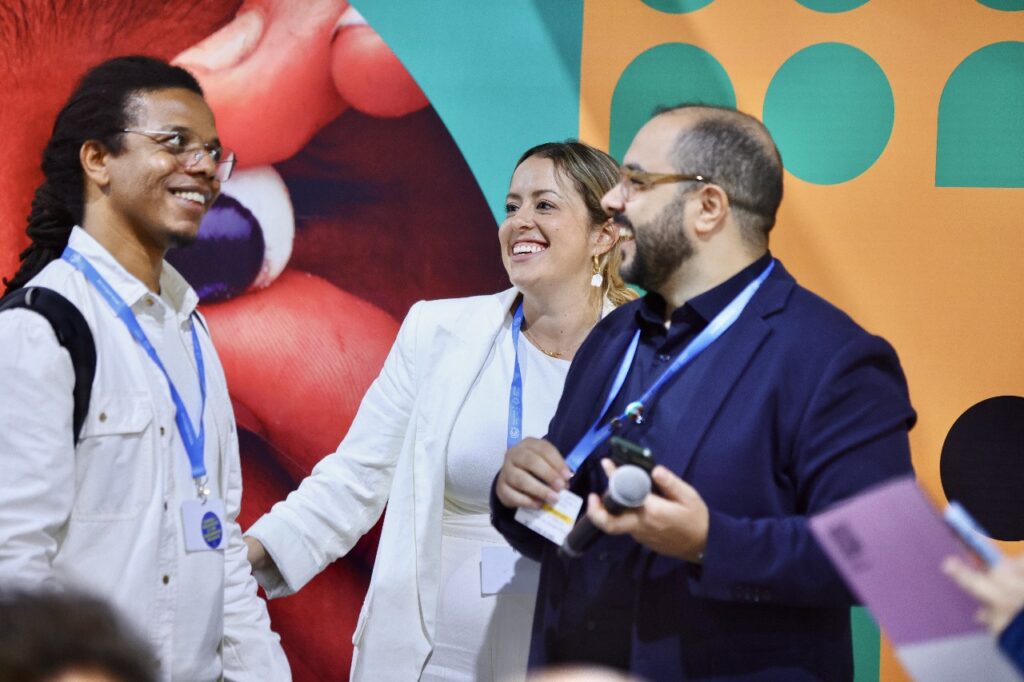
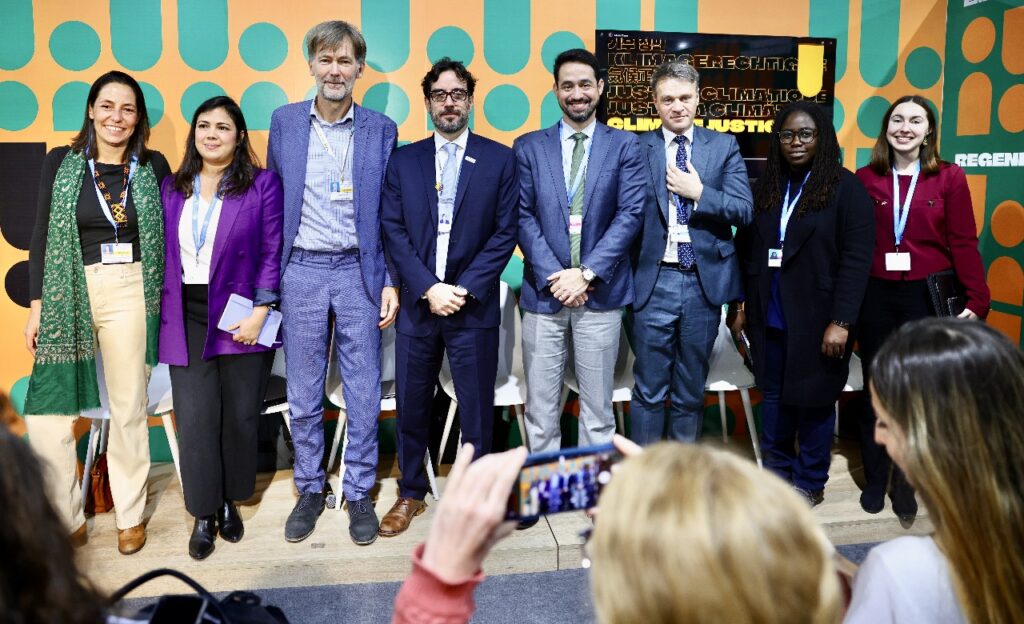
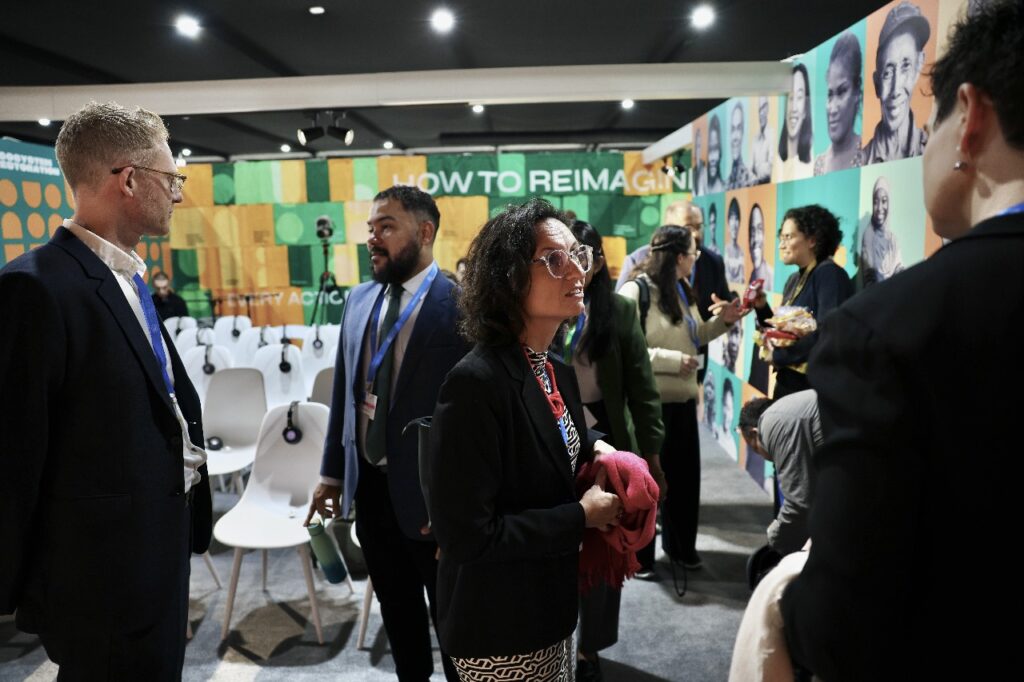
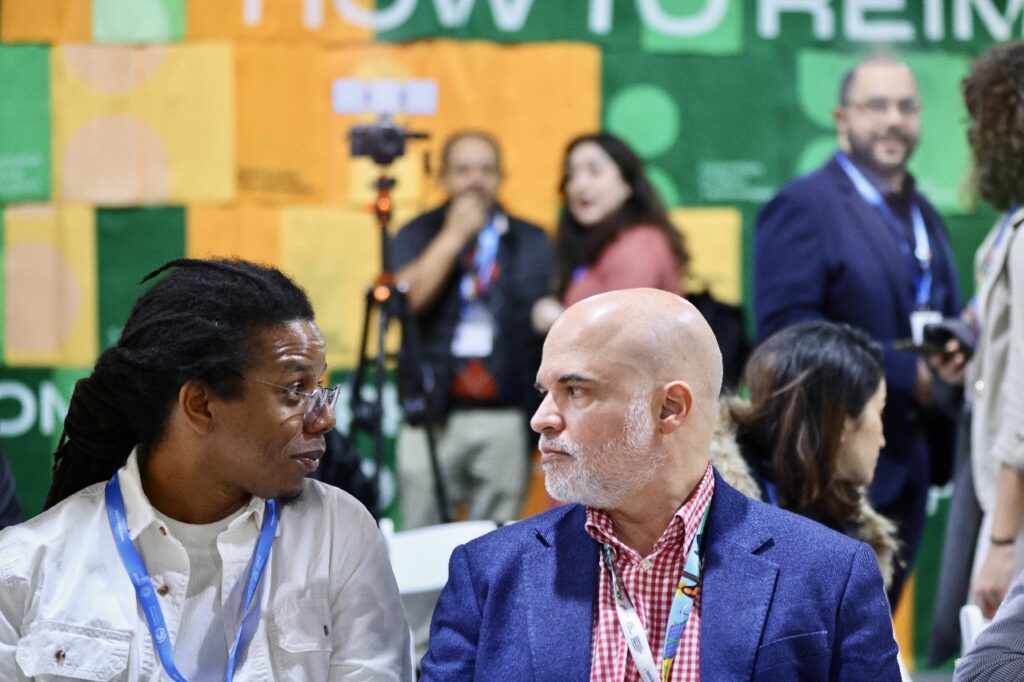
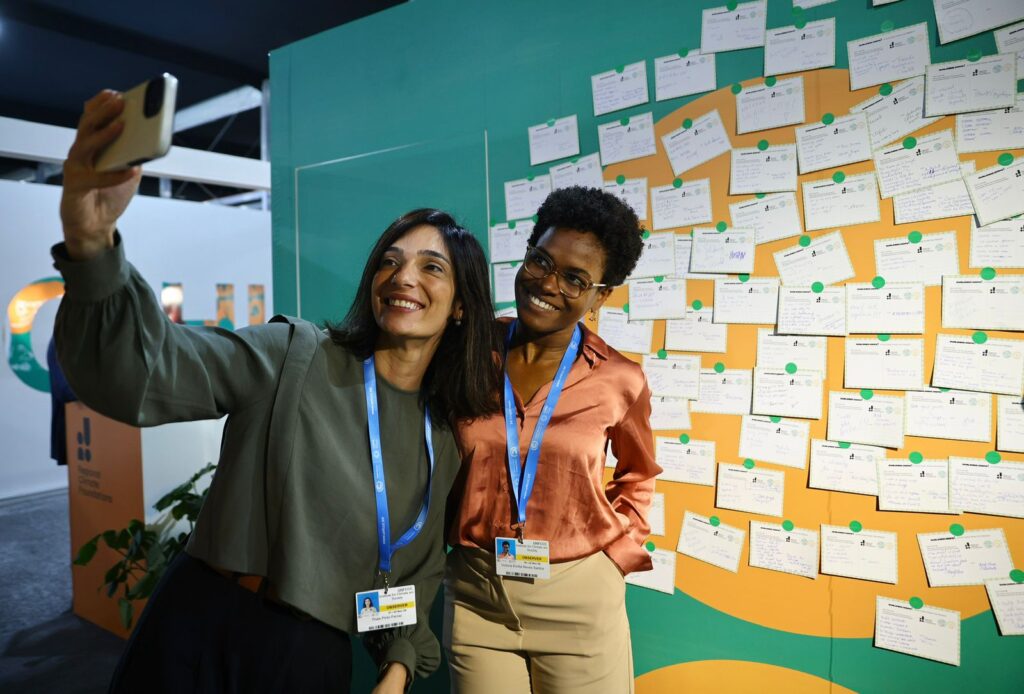
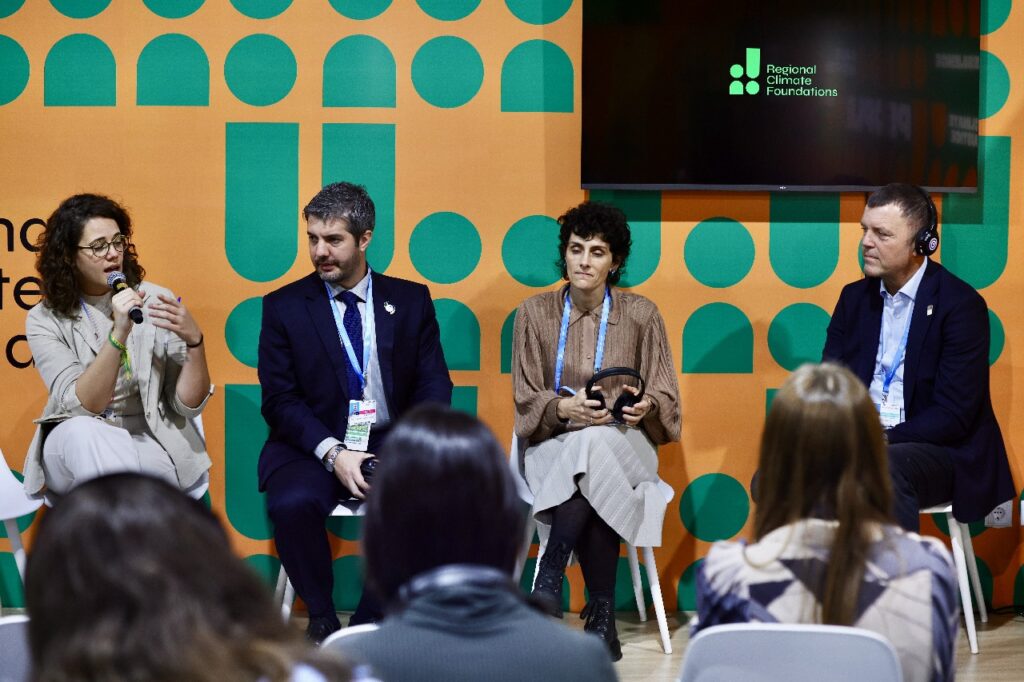
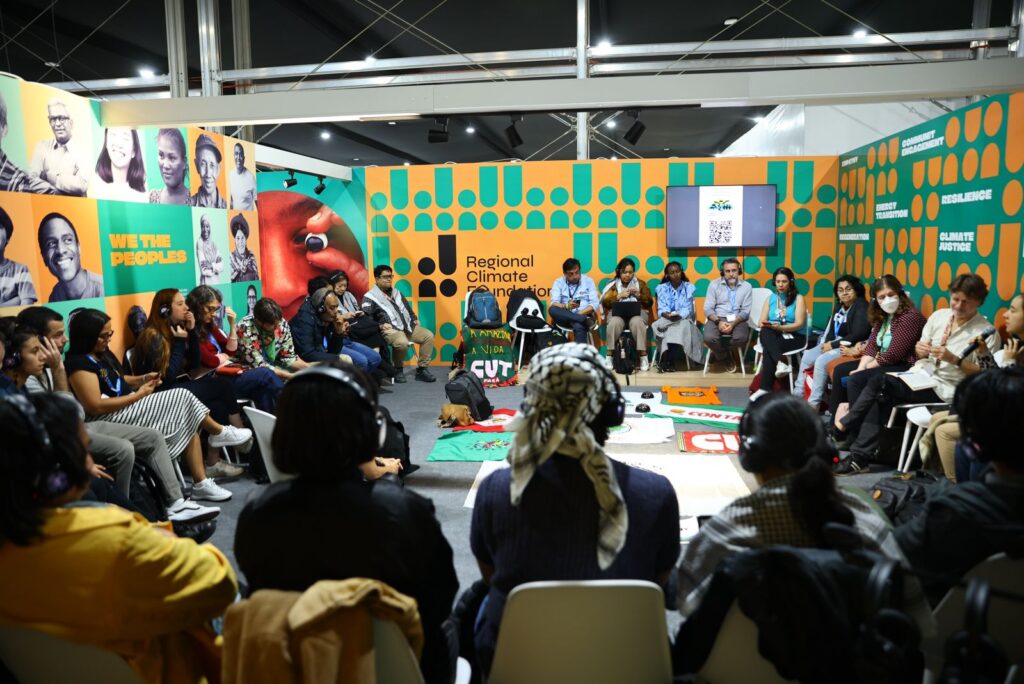

For those organisations that were the proponents of the panels, the Regional Climate Foundations Pavilion was also a space to interact, share experiences and enhance network. “Thanks to the RCF Pavilion, Iswe Foundation was able to organize a conversation on accelerating climate action through increased citizen participation”, says David Levaï, from the Iswe Foundation.
“The visibility provided by the pavilion made it possible to establish new partnerships and highlight the importance of an inclusive and territorialised approach in the fight against climate change”, says Waleska Queiroz, from the executive committee of COP das Baixadas, a decentralized discussion around climate change that occur in the outskirts of Belém.
Road to COP30
Both Waleska Queiroz and David Levaï took theire events at the RCF pavilion as a road to COP30, in Belém. Queiroz plans to “place the Amazon at the centre of climate negotiations, valuing traditional knowledge and meeting the demands of local populations, including peripheral, quilombola, indigenous and riverine populations” — something that she already do with her COP das Baixadas and wants to make bigger next year.
Levaï presented in the pavilion the Global Citizens’ Assembly for COP30, an initiative endorsed by the Brazilian government that aims to drive “individuals and local communities to take action but will also bring grassroots energy to the COP process and pressure leaders to deliver on their promise of a just, fair and equitable transition”, according to him.
In this sense, the foundations that held the pavilion also hope that this experience will serve to strengthen the ties between them, in preparation for more incisive action at COP30. “Now we can think like a network, especially considering the difficulty in reaching agreement that we are seeing at COP29 between countries. This could be critical for COP30”, says Maria Netto.
“It’s essential that civil Society unite efforts towards the next climate change negotiations. It will be our Latin American COP, so, I think it’s a good opportunity for civil Society within Latin American region to raise voice on the needs and priorities”, concludes Mariana Gutiérerez Grados.

